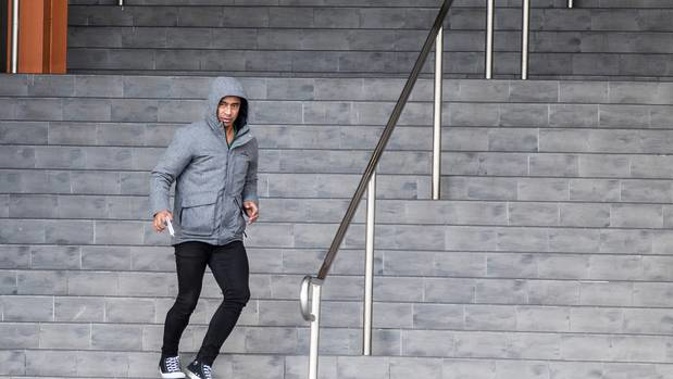
Domestic violence campaigners say giving name suppression to those who assault their loved ones only allows them to continue their beatings in private.
White Ribbon ambassador David White, along with the organisation's head Rob McCann, say suppression does nothing to protect victims.
The pair are speaking out after the High Court lifted name suppression of Pua Magasiva who was convicted of assaulting his wife, Lizz Magasiva.
Pua Magasiva died in a suspected suicide at a Wellington Hotel in May this year, just hours after attacking his wife who was hospitalised.
In a letter to the court after her husband's death Lizz Magasiva said she kept quiet to protect his career.
She told the court about the regular attacks she suffered at the hands of the late actor who became her husband last April, after they met via the social media networking site Instagram.
White has been involved in the court process and said it had been frustrating to listen to people laud praise over the actor who were unaware of his violence convictions.
He said suppression did nothing to protect the victims.
"It's not a good thing and that's why I don't like suppression because it stops the truth from coming out.
"It has so many different effects."
White said it only gave the abuser "a passport to do it again and not change because it's suppressed".
"The sooner we make it public from day one, the sooner we're going to get somewhere about trying to correct the behaviour.
"Our silence is our biggest killer. We need to stop hiding the truth."
The long-term effects of domestic violence on children was also overlooked, he said.
"We tend to disregard childrens' future and we just assume that the kids will be okay, they'll bounce back, but they're the worst at not getting over it.
"Children at any age, from 2 onwards, they absorb what's going on."
By the time children grew up to reach their teens, it was then they often started to replicate their parent's behaviour.
"It sits there and manifests in the kid and that's why we get this second generation of abuse coming out of nowhere."
White Ribbon manager Rob McCann said the case was another example where silence had not helped anyone involved.
"It's when people really need to speak up to get the help they need because simply staying silent isn't going to change anyone's attitudes or behaviour.
"Violence often continues and, in this case, the outcome has been horrific ... But Pua could've got the help he needed if he'd faced up to being violent."
This year's White Ribbon campaign focused on unspoken rules looking at myths and stereotypes around boys and men being told to harden up and that they should not cry.
Such cliches put pressure on boys and men to behave in certain ways and sometimes resulted in them not expressing themselves, especially when it came to asking for help.
McCann said statistics showed that one in three (35 per cent) of New Zealand women had experienced physical and or sexual intimate partner violence in their lifetime.
"There were 133,022 family harm investigations by New Zealand Police [last year] and around 80 per cent of family or intimate partner violence is not reported to police," he said.
"That equates to around 41 per cent of a frontline officer's time on family harm."
Take your Radio, Podcasts and Music with you









